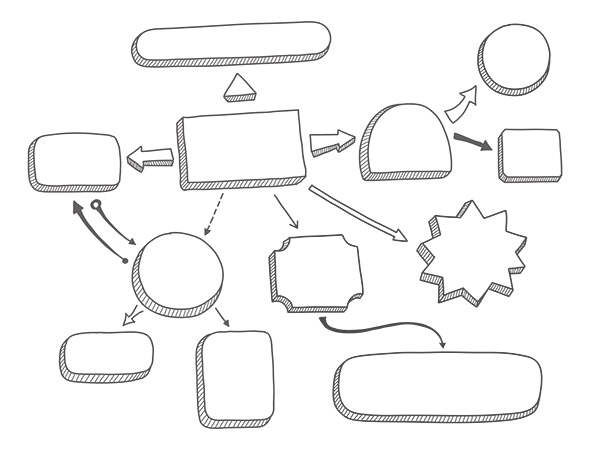Chapter 2:Writing Great Music
After establishing how to attack your PR campaign head on and learning tips and techniques to get yourself out there, everything may seem that little bit clearer. Many artists place a massive amount of emphasis on having their music heard, but there is one vital element that has to be absolutely nailed before you even think about PR; the music itself!
Having the contacts that can get you into the radio one live lounge are absolutely useless if your music isn’t quite up to par, so ensuring that you know how to write great music is an absolute foundation that must be laid before you go any further.
Many people become musicians because they feel a natural kinship with music; it is something that comes naturally and is very often a vocation and not something that they just choose to do for the sake of it. Music comes to some people just easily as breathing does to everybody else. However, even for the most naturally musically inclined, writing the perfect song can be an absolute labour of love.
A good song is a culmination of great lyrics, melodies and harmonies and packs a bit of a punch when it comes to being catchy; a song should be appealing to the listener as soon as they hear the first opening bars.
Starting out: Get to grips with the basics
The first thing you need is the backbone of the song. For some people, the backbone is the melody, for some it’s the lyrics; start with the one that comes easiest to you. Once you have one of these elements, the other one usually comes easily.
Learning how to play an instrument is a great way to get started, as once you know how to play, you will be able to write music; lyrics without music are pointless and in many cases, music without lyrics is boring.
Work out whether you find it easier to think of lyrics first, or if the music inspires the words. Go with the flow and most of all, clear your mind in order for your creativity to flow freely – sometimes the best ideas come when you aren’t trying too hard to think of them.

Inspiration
Everybody has different sources of inspiration; some people just get hit with song inspiration when they least expect it, others need to have a degree of concentration to think about what their next move in their music making is going to be.

Many people try an exercise called free association, which consists of taking a pen and a piece of paper, thinking of a subject, then writing down every word that pops into your head in relation to the chosen subject. The key to free association is to literally let your mind run wild; don’t over think anything and let it flow.
If you can play more than one instrument, switch it up a little bit; instead of writing music using your guitar, why not use your keyboard or whatever other instrument that you have? Play your melodies at different speeds, sometimes a ballad can quite easily become an upbeat track.

Listen to music as much as you can
What is your favourite song? Why is it your favourite song? You need to analyse the tracks that you consider to be classics and completely dissect them right down; by doing so, you will learn what separates a good song from an amazing song. Think of the emotions that this song makes you feel – this is what you should aim for when you write your own music.
Make a list of your favourite songs of all time and write down the theme of them. For the majority, you will notice that they commit to one emotion; happy, sad, angry, love, lust, heartbreak – very rarely will you find an amazing song that skirts around an issue. Good songs commit to an emotion and explore it and make it relatable to the listener.
Expanding your language by learning new words is also a must; rhyming is an essential part of song writing as it makes the track more interesting to the listener. By having an extensive vocabulary, you are giving yourself more phrases to play around with, as opposed to the cliché rhymes that often creep into music today.
Structure
Structure is one of the most important aspects of a song, with the majority consisting of a verse, chorus, verse, chorus, bridge, chorus make up. Whilst this may seem predictable, they tend to have a tried and tested structure for a reason – because it works.

- Contents
Introduction to the Guide - Chapter 1:
What is Music PR? - Chapter 2:
Writing Great Music - Chapter 3:
Basic Recording Studio Set Up - Chapter 4:
How Loops and Samples can help you make your music - Chapter 5:
How to get an online presence - Chapter 6:
The importance of social networking and keeping accounts updated - Chapter 7:
How to decide on an image/style for your band or as an artist - Chapter 8:
The importance of consistency and uniformity within your brand
- Chapter 9:
Registering your music with PRS/PPL – Why? - Chapter 10:
What is music publishing? - Chapter 11:
What are ISRC Codes / Barcodes? - Chapter 12:
Why it is important to network with your music contacts - Chapter 13:
How to write a music press release - Chapter 14:
How to get music reviews - Chapter 15:
How to get radio airplay - Chapter 16:
Finding music bloggers in your genre - Chapter 17:
Why are music bloggers important?
- Chapter 18:
How to find gigs - Chapter 19:
How to set up a band tour - Chapter 20:
Merchandising - Chapter 21:
Promote your music and make money on YouTube - Chapter 22:
What is Sync Licensing? - Chapter 23:
Why are chart positions so important? - Chapter 24:
Why should you have multiple remixes of a dance track? - Chapter 25:
Search Marketing and Music PR - Chapter 26:
Music distribution